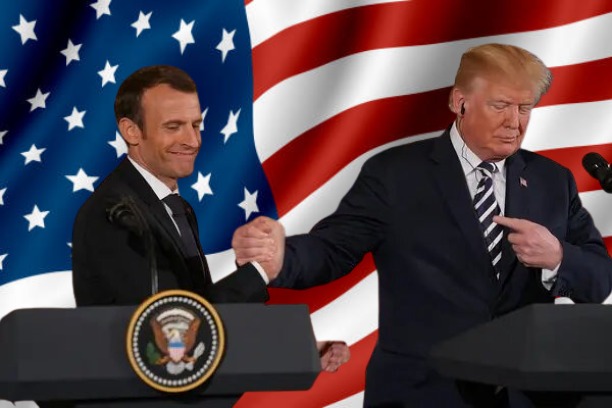Trump’s First Calls with World Leaders: What We Know About His Early Diplomatic Conversations
After winning the presidency, President-elect Donald Trump received a series of congratulatory phone calls from key world leaders, touching on global security, trade, and ongoing conflicts. These initial conversations set the tone for Trump’s foreign policy direction and revealed key issues in U.S.-international relations. Here’s a detailed look at the first calls with world leaders, including their key points of discussion.
Key Global Leaders Reach Out to President-elect Trump
Several prominent world leaders were among the first to congratulate President-elect Trump. Here’s an overview of the major topics and diplomatic exchanges during these calls:
1. Israeli Prime Minister Benjamin Netanyahu
One of the first leaders to call Trump was Israeli Prime Minister Benjamin Netanyahu. His office described the conversation as “warm and cordial,” with both leaders agreeing to strengthen cooperation on Israel’s security. They also discussed the Iranian threat—a key issue for both Israel and the U.S. moving forward. The Israel-U.S. relationship will likely remain a top priority in Trump’s foreign policy.
2. French President Emmanuel Macron
French President Emmanuel Macron had a “very good” 25-minute conversation with Trump. Macron emphasized the importance of Europe’s role on the global stage and discussed issues including the ongoing Ukraine conflict and tensions in the Middle East. Macron’s call highlighted the importance of U.S.-Europe relations and collaboration on major global crises.
3. Ukrainian President Volodymyr Zelenskyy
Ukraine’s President Volodymyr Zelenskyy, who had a complicated relationship with Trump in the past, tweeted about an “excellent call” with the president-elect. Both leaders agreed to maintain close dialogue and expand U.S.-Ukraine cooperation. This call signals a potential shift in U.S.-Ukraine relations under Trump’s leadership, especially as the Ukraine-Russia conflict continues to dominate European security concerns.
4. South Korean President Yoon Suk Yeol
South Korea’s President Yoon Suk Yeol congratulated Trump by echoing his famous slogan, “Make America Great Again,” before addressing the growing threats posed by North Korea. The conversation focused on North Korea’s new intercontinental ballistic missiles, and Yoon emphasized the need for a “perfect South Korea-U.S. security posture,” an area of mutual interest between the two nations.
5. Canadian Prime Minister Justin Trudeau
During his call with Trump, Canadian Prime Minister Justin Trudeau discussed key trade issues, including the Canada-United States-Mexico Agreement (CUSMA), which Trump helped negotiate during his previous term. The leaders also talked about global supply chains and ways to address unfair trading practices in the international economy—key concerns for both countries.
6. Japanese Prime Minister Shigeru Ishiba
Japanese Prime Minister Shigeru Ishiba reported a “friendly” conversation with Trump, emphasizing the importance of the U.S.-Japan alliance. Ishiba is expected to meet Trump in person later this month after the G20 summit in Brazil. The U.S.-Japan relationship remains central to both nations’ strategies in addressing security threats in the Asia-Pacific region.
7. British Prime Minister Keir Starmer
In his call with Trump, British Prime Minister Keir Starmer reaffirmed the U.K.’s “special relationship” with the United States. They also discussed the situation in the Middle East, emphasizing the need for regional stability. This discussion highlighted the strong diplomatic and military ties between the U.S. and the U.K.
8. Other Global Leaders
President-elect Trump also received congratulations from several other global figures, including Indian Prime Minister Narendra Modi, Saudi Arabia’s de facto leader Prince Mohammed bin Salman, and Italian Prime Minister Giorgia Meloni. While specific details of these calls have not been widely released, they likely focused on key issues such as regional security, trade agreements, and international diplomacy.
Russia’s Response: A Key Development
While Trump received numerous calls from world leaders, one notable absence was Russian President Vladimir Putin. The Kremlin’s public response to Trump’s victory has been notably cautious, with Kremlin spokesperson Dmitry Peskov stating that there were no immediate plans for Putin to congratulate Trump. Peskov downplayed any concerns about worsening relations between the U.S. and Russia, noting that tensions were already at historic lows due to the ongoing Russia-Ukraine war and broader geopolitical issues.
What This Means for U.S. Foreign Policy
These first calls with world leaders provide valuable insights into the priorities for President-elect Trump’s foreign policy. From security threats in the Middle East and North Korea to trade relations with key allies like Canada and Mexico, these early conversations set the stage for future diplomatic engagements.
Trump’s interactions with leaders like Netanyahu, Macron, and Zelenskyy indicate that the U.S. will continue to play a central role in addressing global security challenges—especially in the context of ongoing conflicts in Ukraine, Israel, and the Middle East. Meanwhile, calls with leaders such as Trudeau and Yoon signal that trade and economic security will remain critical topics of conversation in the months ahead.
The U.S.-Russia relationship, however, remains a wildcard. With the Kremlin’s tepid reaction and ongoing tensions, the future of U.S.-Russia diplomacy will likely evolve under the new administration, especially as global political dynamics continue to shift.
Conclusion: What to Expect in the Coming Months
As President-elect Trump steps into the role of commander-in-chief, these early diplomatic calls suggest that global security, trade issues, and regional alliances will be central to his foreign policy agenda. The absence of a congratulatory call from Russia, combined with ongoing crises in Ukraine and the Middle East, will likely play a significant role in shaping U.S. foreign policy priorities.
In the months ahead, expect more high-level diplomatic exchanges as Trump seeks to strengthen alliances and address the pressing challenges of a rapidly changing global landscape. The calls with world leaders set a clear foundation for what could be an intense period of international engagement.

